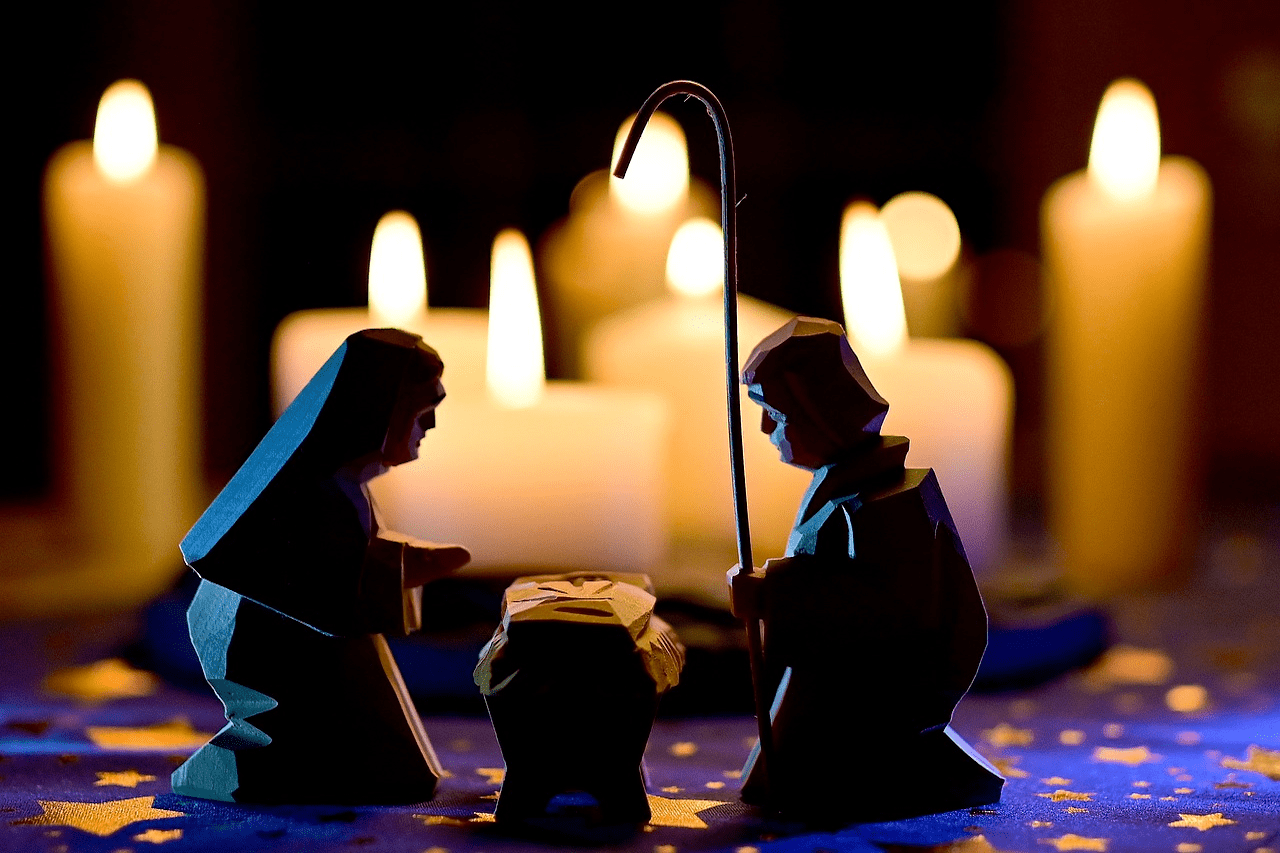Isaiah 9: 2-4, 6-7 (RM in Canada) or 1-6 (RM in U.S.) or 2-7 (RCL); Psalm 96; Titus 2: 11-14; Luke 2: 1-14.
“The people who walked in darkness have seen a great light. Those who lived in a land of deep darkness – on them light has shone.” Isaiah 9:1
“Democracy dies in darkness.” – Motto of the Washington Post
When you scratch the surface of the lovely story of Christ’s birth, you come upon a markedly political layer. And this deeper meaning layer not only tells us something about why Christmas began to be celebrated, but takes the story to a richer and more profoundly liberating level, both then, and now.
Christ was born into occupied Palestine. The city of Bethlehem is located in Palestinian territory today. The Gospel writer Luke goes to great pains to make clear that Jesus was a Jew, born in the ancestral line of King David, Israel’s own legendary king, as opposed to the hegemony of the Roman Emperor. The Bethlehem-born Scripture scholar Niveen Sarras writes,
“I understand the birth of Christ told in the books of Luke and Matthew as a religious and political response to Roman imperialism.”
She describes the brutality of Syrian legions against the local Jewish population, and adds further,
“The Jews found themselves trapped by Roman injustice and imperialism. The only way out was through God’s intervention, by … restoring David’s kingdom. Our Lord was born under these difficult circumstances.”
Would it surprise you to learn that Christians did not begin to celebrate the birth of Christ until, apparently, the mid-fourth century? Easter was celebrated annually as of the mid-second century, but the birth of Christ in the flesh was never part of our earliest ancestors’ church year. Instead they marked the death date of their martyrs, because that was considered the martyrs’ “birthday into Heaven.”
And contrary to common belief, there is no (repeat, no) evidence fourth- century Christians decided to co-opt a pre-existing non-Christian feast. They would sooner have died, and sometimes they did. Severe Roman persecutions of Christians had persisted into the first decade of the fourth century, and broke out again in some regions in the 360’s. Christians had always defined their own identity as diametrically opposed to “the pagans.” After 313 when the Emperor legalized the Christian cult on the same level as other non-official cults, Christians were less likely to vilify the Roman Empire as “the enemy of the people.” Church communities gradually made their peace with the now-declining Empire. About Christmas, the most we can surmise is that by the year 361 when an early Nativity liturgy was celebrated in North Africa, a sort of inculturation was seeping into Christian worship practice. This is what gave us presiders seated above the people swathed in vestments that make them look like Roman magistrates, incense, altars, candle-bearing acolytes in procession, and worship in Latin.
And yet, and yet … Christmas has struck deep roots in Christian faith, and its celebration calls forth profound and poignant memories and hopes in our hearts, year after year. When people who grew up in the church leave the church as adults, Christmas is usually the last thing to go – more often, it never really goes. Christmas supports and deepens human relationships and human love, drawing us into a longing to reaffirm that the love of other persons anchors us deeply in a love that pervades the universe and undergirds creation. The shifting of light and darkness, as the northern hemisphere gives promise of emerging from short dim days and long nights, whispers hope for brighter days, in every sense of the word.
People who walk in darkness need to see the light renewed, especially now when war breaks out in diverse countries with no end in immediate sight.
“For every boot that tramped in battle, every cloak rolled in blood,
Shall be burned as fuel for the flames. For unto us a child is born.”
© Susan K. Roll
This Reflection was adapted from that of December 25, 2020.
Susan Roll retired from the Faculty of Theology at Saint Paul University, Ottawa, in 2018, where she served as Director of the Sophia Research Centre. Her research and publications are centred in the fields of liturgy, sacraments, and feminist theology. She holds a Ph.D. from the Catholic University of Leuven (Louvain), Belgium, and has been involved with international academic societies in liturgy and theology, as well as university chaplaincy, Indigenous ministry and church reform projects.





I particularly appreciated your insight that “Christmas supports and deepens human relationships and human love, drawing us into a longing to reaffirm that the love of other persons anchors us deeply in a love that pervades the universe and undergirds creation.” To which I add “Amen! May it be so!”.
I found the political contexts and historical information you’ve provided here about Christmas so interesting, Susan. You’ve reminded me how very rich our Christian faith is — thank you!